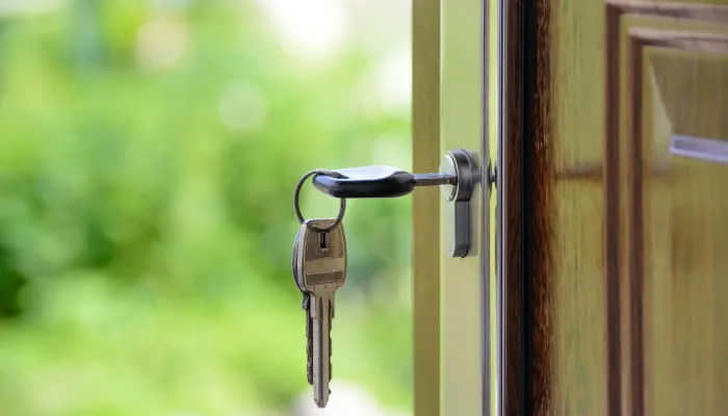Top 5 Things That Can Void Your Home Insurance—And How to Avoid Them

Home insurance provides essential protection for homeowners, giving you peace of mind that you’re covered in case disaster strikes. But many homeowners don’t realize that certain actions or oversights can actually void your policy, leaving you without financial support when you need it most. The worst part? Insurance companies might not notify you about these issues until it’s too late.
To ensure your policy stays active and your home is properly protected, here are five common mistakes that can invalidate your home insurance—and how to avoid them.
1. Making Major Renovations Without Notifying Your Insurer
If you're planning a significant renovation—whether it’s remodeling your kitchen, adding a second floor, or even installing a swimming pool—it’s crucial to let your insurance provider know. These renovations can dramatically increase your home’s value and the associated risks. For example, adding a pool can increase the likelihood of accidents, and finishing a basement might change the risk profile of your property. Failing to update your insurer could result in your coverage being insufficient or even voided.
How to avoid it:
Before you start any major renovations or additions, contact your insurer to discuss the changes. They may need to adjust your coverage or add specific endorsements to reflect the new risks. It's important to understand that home insurance isn’t a one-time policy; it requires regular updates to stay relevant to your home's current condition. Keep detailed records of any changes, including receipts for materials and work done, as this can help with future claims.
2. Leaving Your Home Vacant for Extended Periods

Leaving your home unoccupied for an extended period—whether it’s due to travel, relocation, or even while trying to sell your property—can trigger a void in your home insurance policy. Most insurers won’t cover a vacant home for longer than 30 to 60 days. A vacant home is considered a higher risk because it’s more prone to vandalism, theft, or undetected damages, such as burst pipes or roof leaks.
How to avoid it:
If you plan to leave your home vacant for more than the usual period, you need to notify your insurance provider. In many cases, you can purchase additional coverage for vacant properties to ensure you’re still protected. Also, ask a friend or neighbor to check on your home regularly and keep it looking occupied (for example, using a light timer, stopping mail delivery, or arranging for landscaping services).
3. Running a Business from Home Without Proper Coverage
Running a business from your home—whether it's a home office, a daycare, or an e-commerce venture—can introduce new risks that aren’t covered by a standard homeowner's policy. If someone is injured on your property while conducting business activities or if business equipment is damaged, your claim could be denied unless you specifically add business insurance coverage to your policy.
How to avoid it:
If you’re running any sort of business from home, you must inform your insurance provider. Many insurers offer home-based business endorsements that can be added to your policy for a small additional fee. This coverage protects both your personal and business property, including liability coverage if a client or visitor gets injured while on your property. It’s also important to carefully review the type of business you’re running, as some high-risk businesses (like daycare or beauty salons) may require specialized coverage.
4. Failing to Maintain Your Property

Neglecting your property’s maintenance can lead to avoidable damages that won’t be covered by insurance. Insurance policies typically don’t cover damages caused by regular wear and tear, neglect, or lack of proper upkeep. For example, if your roof has been leaking for months and you’ve done nothing about it, and it eventually causes severe water damage, your insurer may reject your claim because the issue was preventable.
How to avoid it:
Regular maintenance is essential for keeping your home insured and safe. Make a habit of checking your roof, plumbing, heating, and electrical systems at least once a year. Ensure that gutters are clear, appliances are in working order, and the foundation remains free from cracks or leaks. If you make repairs, keep documentation of the work done. Regular maintenance not only protects your home but also shows that you’re taking reasonable care of your property, which helps prevent denied claims.
5. Misrepresenting Information on Your Insurance Application
Providing inaccurate or incomplete information when applying for home insurance can lead to your policy being voided. Whether it's failing to disclose a home business, underreporting the number of residents, or neglecting to mention a high-risk pet (like certain dog breeds), failing to provide accurate details could invalidate your coverage. Even seemingly minor omissions can have serious consequences when it’s time to file a claim.
How to avoid it:
Always be honest and transparent when applying for insurance or making changes to your policy. If you’re unsure whether something is relevant—such as a pet, a change in your home’s value, or an alteration to the property—ask your insurance provider. It’s better to over-disclose than under-disclose because any misrepresentation could lead to a canceled policy or denied claims when you need coverage most.
Bonus Tip: Regularly Review and Update Your Policy
Home insurance is not a “set it and forget it” type of policy. Over time, the value of your home may increase, you might add new belongings, or your needs could change. Periodically reviewing your policy and adjusting your coverage ensures that it remains adequate as your life evolves. This includes updating your personal property inventory and making sure your coverage limits align with the current replacement cost of your home and belongings.
Final Thoughts
Home insurance is meant to protect you in times of crisis, but only if it’s valid when you need it. Avoiding these five common mistakes will help ensure that your home—and your finances—are fully covered. By maintaining open communication with your insurance company, keeping up with regular property maintenance, and being honest about any changes in your home, you’ll significantly reduce the risk of your policy being voided.
Remember, prevention is key. Regularly review your policy, notify your insurer of any changes, and stay on top of maintenance. That way, you can rest easy knowing that your home is truly protected.
